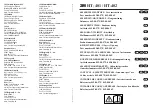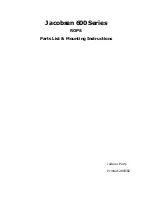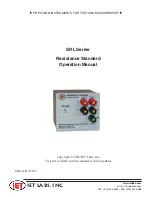
To set the temperature, press and hold the ‘press
to set’ key and at the same time rotate the
temperature selector knob until the required
temperature is shown on the digital display.
Release the ‘press to set’ key and the
temperature will display will revert back to the
current bath temperature.
The shaking water bath will now automatically
heat up to the set temperature.
5.6 Low level water sensor
The low-level water sensor is designed to provide
a warning when the water level has become too
low in order to protect the bath from
overheating. The sensor is located towards the
bottom of the tank on the sidewall (see figure
2). When the water level drops below the
sensor, the LED display will flash ‘H20’ and ‘ERR’
to indicate that the water level is too low and
the heater will switch off. The heater may be
restarted by filling the bath with water to the
required level above that of the sensor.
nB the lens of the sensor must be wiped
clean with a damp cloth at regular intervals
to ensure correct function.
5.7 Draining the bath
To empty the bath, ensure that the water has
cooled to below 60°C. The drain tap is located
at the rear of the bath (see figure 1). Attach a
suitable pipe to the drain tap and place the end
of the pipe over a drain or container. Turn the
drain tap anticlockwise to empty the bath.
When the bath is empty ensure that the drain
tap is closed.
nB Do nOt attempt to move or empty the
bath with hot water
6. Maintenance, Servicing
& repair
warning: Ensure the unit is disconnected
from the mains electricity supply before
attempting maintenance or servicing.
This range of equipment does not require routine
servicing. The only maintenance required is to
clean external surfaces with a damp cloth and
mild detergent. Spillages or splashes should be
cleaned up straightaway after isolating the unit
from the mains electricity supply.
6.1 repairs
Any repairs or replacement of parts MUST be
undertaken by suitably qualified personnel.
Only spare parts supplied or specified by
Bibby Scientific Ltd. or its agent should be
used. Fitting of non-approved parts may
affect the performance of the safety
features designed into the instrument.
For a comprehensive list of parts required by
service engineers conducting internal repairs, or
to receive a service manual, please contact the
Sales Department of Bibby Scientific Ltd quoting
both the model and serial number.
If in any doubt please contact the Technical
Department of Bibby Scientific Ltd.
6.2 Cleaning
Periodically clean the bath with a damp cloth
and if necessary a mild detergent solution.
Do not use harsh or abrasive cleaning agents.
De-scaling may be required depending on the
hardness of the water.
If the bath is to be left unused for more than a
couple of days, drain the bath to prevent build
up of unwanted scale.
In some cases small spots may be visible in the
baths which resemble rust spots. In most cases
these will be small ferrous particles on the
surface of the bath which have oxidised causing
the appearance of rust. These can usually be
cleaned away using a standard stainless steel
cleaner and plastic scourer.
4







































